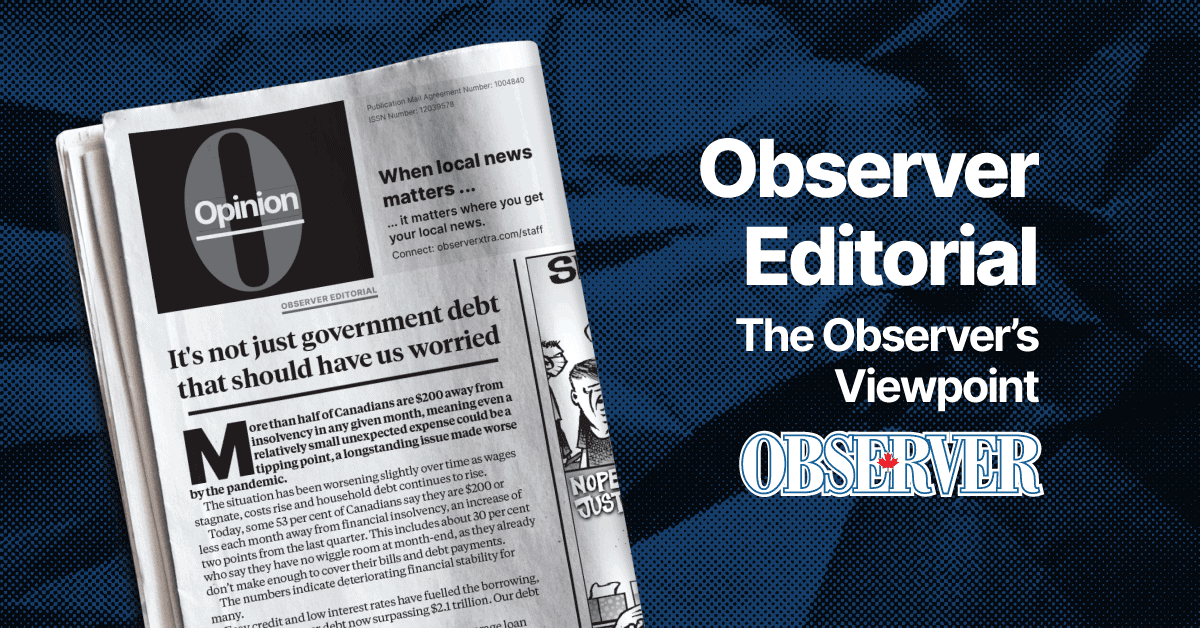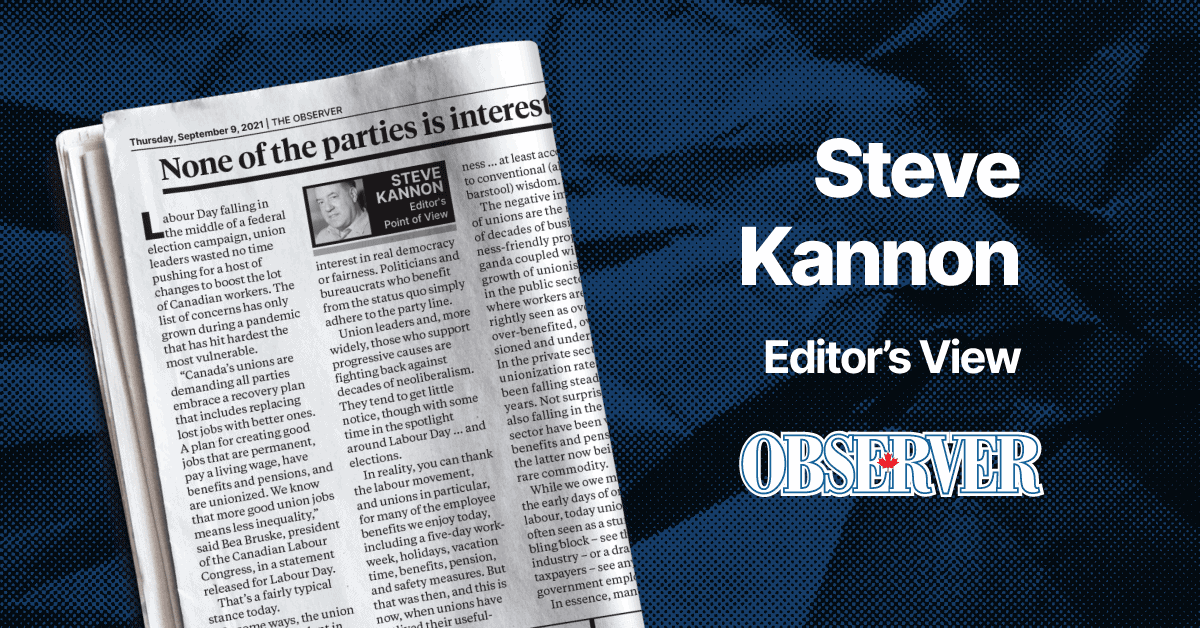;
;
;
Next Article
Casting a vote is the most basic part of democracy

Municipalities don’t have any power not given to them by the province. They’re often saddled with provincial policies, many not well-founded and expensive, as in the case of emergency services, particularly in larger centers. So burdened, they often compound the built-in problems with a lack of over
Last updated on May 03, 23
Posted on Oct 20, 22
4 min read
